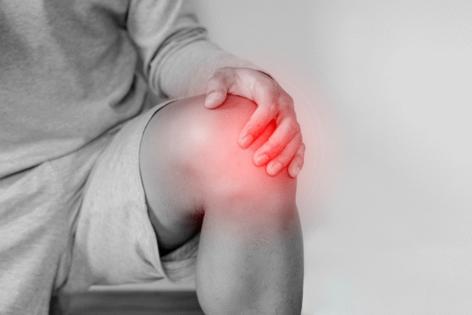An orthopedic specialist's tips to care for achy knees as you age
Published in News & Features
Chronic knee pain is just a matter of time for many adults. With tips from a treatment expert, however, you might be able to soothe the pain — or even prevent it.
Dr. Angie Brown is a clinical associate professor at Quinnipiac University, where she uses her experience as an orthopedic specialist to teach students about the musculoskeletal system. Brown offered a lesson on knee health in an article for the Conversation.
Roughly a quarter of all U.S. adults over 45 will experience knee pain frequently. It’s the most common complaint related to the musculoskeletal system among primary care patients, according to the Knee Pain Centers of America. For those 75 and older, the centers said chronic knee pain also affects up to 3 in 5 people. Much of the problem can be traced to knee osteoarthritis, something that affects just under half of the general population.
According to Brown, osteoarthritis can be caused by both injury and overuse of a joint, which leads to pain, swelling and stiffness.
“This disease affects the knees of over 300 million people worldwide, most often those 50 years of age and up,” Brown wrote. “American adults have a 40% chance of developing osteoarthritis that affects their daily lives, with the knee being the most commonly affected joint.”
The orthopedic specialist explained that age is also a factor, because cartilage within the joints begins to break down over time. Although time’s effect is difficult to mitigate, other factors at play are easier to manage.
“The first is excessive weight,” she said. “Based on studies between 2017 and 2020, nearly 42% of all adult Americans are obese. This obesity is a significant risk factor for diabetes and osteoarthritis and can also play a role in other knee injuries. A lack of physical activity is another risk, with 1 in 5 U.S. adults reporting that they’re inactive outside of work duties. This can result in less muscular support for the knee and more pressure on the joint itself.”
Inflammatory diets can also worsen knee pain risks by changing the body’s gut microbiome. Brown said to avoid diet’s high in sugar and fat, and low in fiber.
“Increasing physical activity is one of the key elements to preventing knee pain,” she added. “Often physical therapy intervention for patients with knee osteoarthritis focuses on strengthening the knee to decrease pain and support the joint during movement.”
Swimming, biking and walking are all orthopedic-approved, low-impact exercises that can help prevent knee pain. Quadriceps-strengthening exercises — such as straight leg raises — are especially important for knee pain prevention, she said.
When it comes to relieving knee pain, cortisone injections can lubricate the joints for a quick fix. Those typically only delay a person’s need for osteoarthritis-related surgery by up to a few years, however. Knee replacement surgeries are also not guaranteed solutions, Brown explained, because eligibility for the operation depends on a person’s overall health. Roughly 10% of replacements last fewer than 15 years.
For long term relief, older adults can to turn to something else.
“Physical therapy is generally a longer-lasting treatment option for knee pain,” Brown wrote. “Physical therapy treatment leads to more sustained pain reduction and functional improvements when compared with cortisone injections treatment and some meniscal repairs.”
©2024 The Atlanta Journal-Constitution. Visit at ajc.com. Distributed by Tribune Content Agency, LLC.







Comments